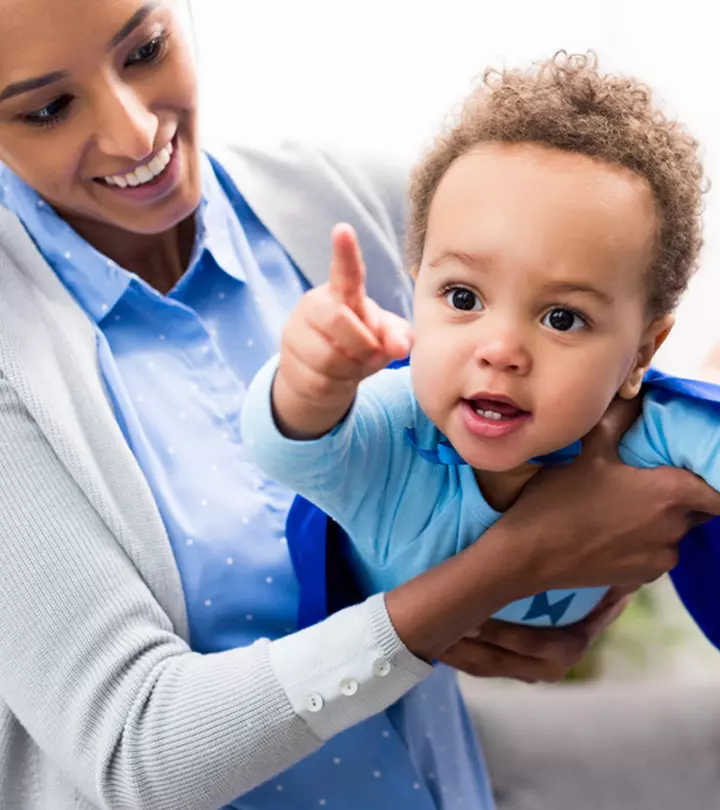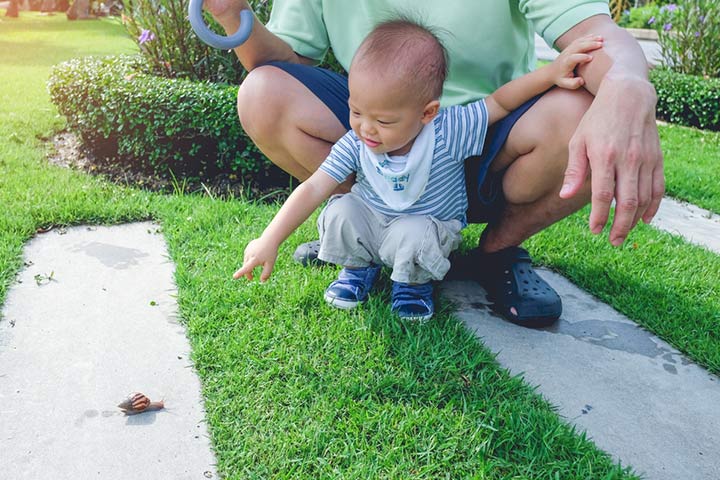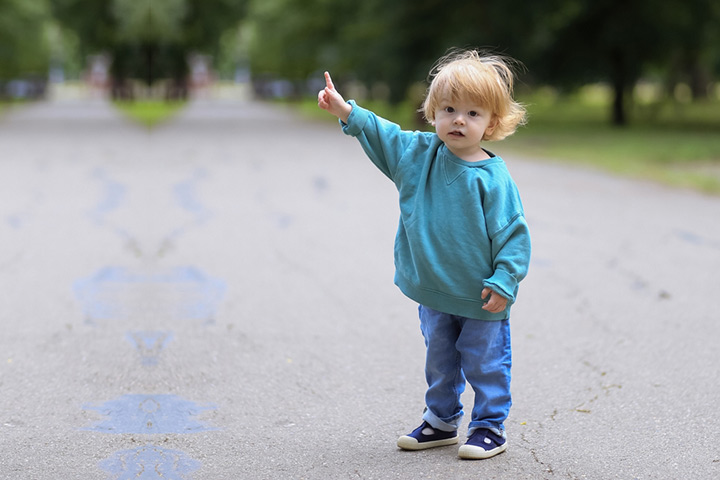
Image: Shutterstock
Parenthood is filled with joy and wonder as your little one learns to uncover new skills and ways to interact with their environment at every turn. Watching your baby reach every milestone can be exciting and fascinating, but did you know that learning to point was one of them? Pointing is an important fine motor skill that your baby will develop at an early stage in order to share sightings and interact with you. They may point at something and then clap to make you look. When you notice the object, talk to them about it. They want to introduce you to the things they are actively exploring and discovering. Pointing may seem like a simple action to you but your baby has put in some complex thought behind this quick gesture as it means that your baby is aware of future and past events and that objects can be moved. When you do the pointing, your baby knows that you want them to pay attention to something.
Here are 3 ways in which pointing can be inculcated for your baby’s further development:
1. It Encourages Interaction
Image: Shutterstock
Have you ever caught your child randomly pointing towards something you can’t see or don’t notice? It could be a cloud in the sky or something normal like your curtains that you don’t usually pay attention to. Either way, when your baby points at something, be sure to acknowledge it enthusiastically. By reacting to and mirroring their gestures, you are reinforcing their understanding and observations of their surroundings and empowering them to engage the people in their environment in the process. This is an important skill to develop. There are other ways to keep them engaged in their surroundings such as singing or reading. Babies often imitate the way their parents respond to these stimuli. They may copy the way you move your hands to the music. They find it interesting or captivating in a book or even mirror the way you play with a toy. This is normally how babies learn the appropriate way and course of action they have to display when engaging in specific activities or scenarios. So, it is your job to encourage this behavior. Try listening to songs with set actions and hand movements to teach them that this is fun. Giving them toys that they can pull or take apart and put back together will also keep them interested. Basically, anything that garners a response and strengthens their hand muscles is good.
2. It Builds Language Skills
Developing good pointing skills has some definite and interesting benefits for your baby. For example, interacting with people via pointing can be the building blocks toward language skills. Learning to point means your baby finally has a concrete, visual way in which they can communicate their wants, needs, and interests, which means they are less likely to throw a tantrum or make a fuss. This is great news for parents who need a much-needed break from all the crying. You no longer have to guess. Instead, your baby will simply show you. When they motion towards a specific object they are curious about, this is your chance to tell them what it is and what it does. This helps your little one pick up words faster and have a deeper understanding of what they are used for, which is great for further language development.
3. Differences In Pointing Skills Are Normal
Image: Shutterstock
All babies are different and develop in different ways at different times. While some are frequent pointers and develop this skill earlier on and keep at it consistently, others may just take the adult by the hand and lead them to the object instead. Neither action is better than the other. Once your child starts to develop verbal skills, they will try to utilize as many words as they can before they resort to gesturing again. This is normal. Your baby has probably found better ways to get your attention and doesn’t think pointing is necessary. However, if your baby is not pointing or giving you any directions or indication of what they find appealing by 18 months, it is time to talk to your pediatrician, especially if they are not interested in engaging with you during play.
Keep in mind that all children are different and that your baby will eventually pick up important and necessary skills. Pointing happens to be one of them, so look out for it and be enthusiastic about exploring this new milestone with your little one. After all, watching them experience the world and trying to express their excitement is the best thing about being a parent. Take the time to watch them grow and flourish instead of worrying about how often they do this particular activity. As long as they take an interest in what’s around them, they’ll be just fine.














